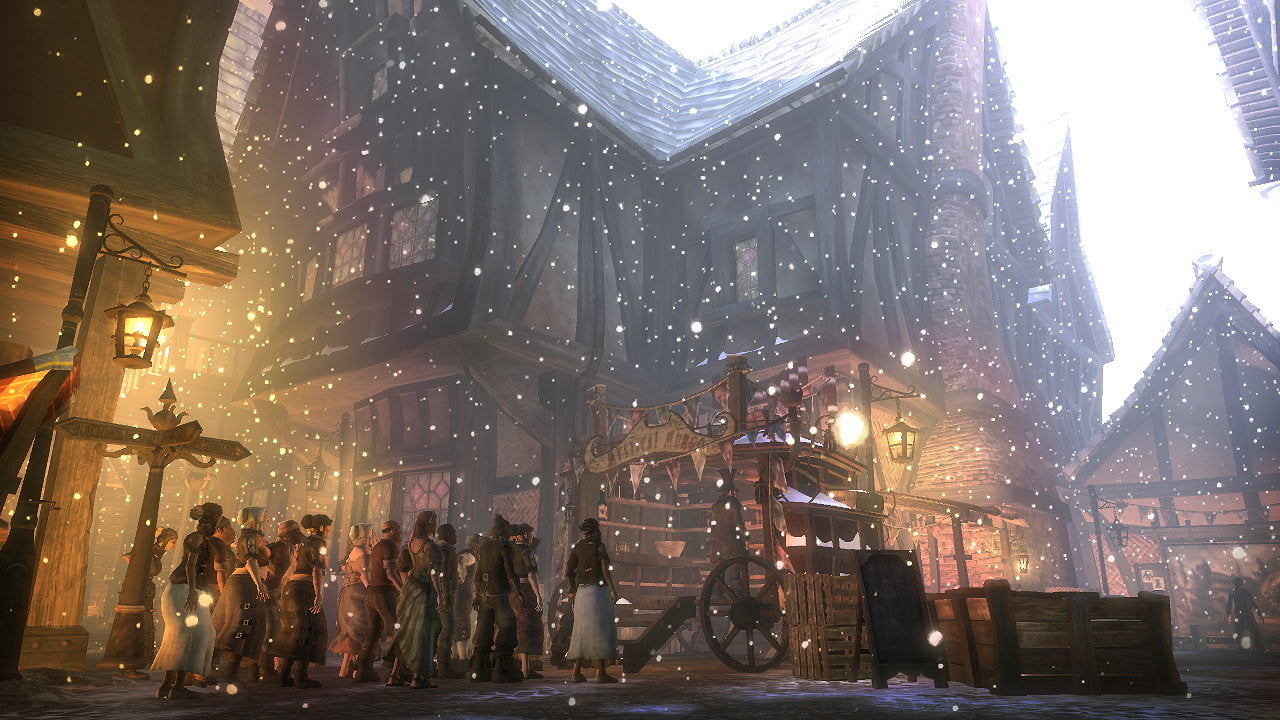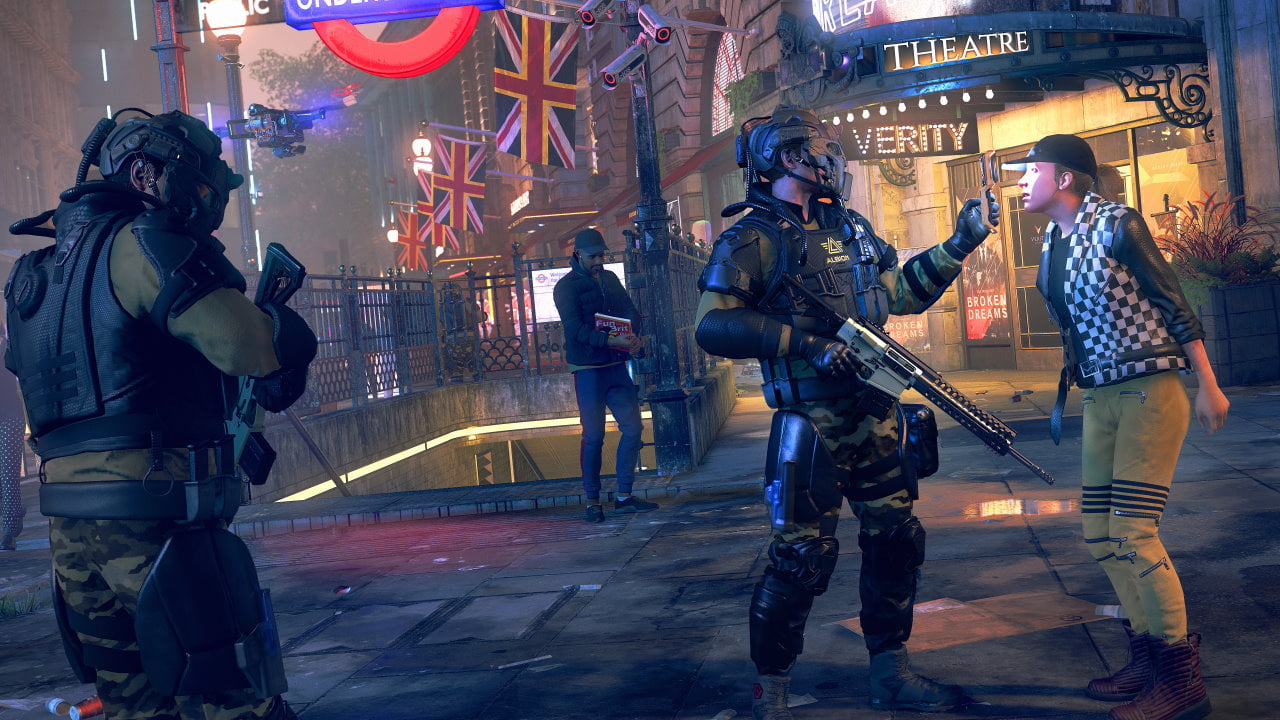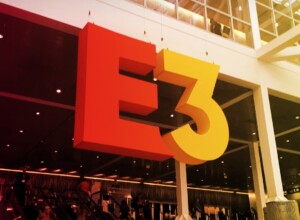Media representations of Britain are often rose-tinted, but the reality is quite different. How does that play out in video game versions of the UK?
Britain is pretty comfortable with producing historical interpretations of itself. We’re known around the world for our period pieces like Pride and Prejudice, Black Adder and The Crown. But, like The Crown, the closer we get to the present day and even (God forbid) the future, the more uncomfortable we all get.
Video games also struggle with this issue. While we have numerous franchises that play into the rosy image we have of yesteryear, few take a look at future Britain. Other countries do this so well, from Fallout and The Last of Us in America to Attack on Titan in Japan. But Britain’s interpretations are limited. So how do we see ourselves and our past? And is there a way for us to imagine a future – any future, even a gory post-apocalyptic one – for these Sceptred Isles?
The rosy, pre-industrial ideal
Okay – let’s start with the granddaddy of fantasy himself: JRR Tolkein and his body of work have inspired almost the entire modern fantasy genre. You could argue that most fantasy is actually set in a version of Middle Earth, which is Tolkein’s own hyperbolic vision of the UK. In fact, it was a vision so grand that when Peter Jackson made the movies they had to film them in New Zealand – proving once and for all that NZ is just a better version of the UK.
There are issues with fantasy being based mostly around that of a straight white guy in the 1950s – the stories we see in fantasy are often limited in scope. I say this as a white British person who loves Lord of the Rings and it’s games. I’m particularly fond of The Lord of the Rings: War in the North, partly because I am Northern and partly because I love to play as a dwarf who hits things with a big axe.
Looking to the classic games that flow from Tolkien’s work, like The Witcher, Skyrim and any of the D&D-inspired games (because D&D itself is so heavily influenced by Tolkein) they all have this issue of a vision of the UK that involves a lot of straight, white, male protagonists. They may do some interesting things with it – Skyrim does give you the option to select both your gender and ‘race’ (fantasy race here, so think dwarves, humans, khajiit) – but the world itself is racist and misogynistic.
The Witcher series, which mostly has you playing as Geralt with occasional sojourns into playing as Ciri, also does some interesting things with its female love interests. Yes, they are gratuitously sexualised, but they are also deeply complex and powerful characters. Ciri is the most powerful person in the game and has conflicting motivations and feelings about how to deal with this. The Netflix series also uses the material as a chance to make progressive casting choices and to explore some challenging issues such as genocide and colonisation through the relationship between the elves and humankind.

Nevertheless, the world we usually see when we look at classic fantasy is one informed by a retro vision of Britain’s past – a monoculture where strapping male heroes swoop in and save maiden fair. The game series that does the best unpicking of this trope is Fable, one of my all-time favourites. You can choose your skin colour and gender. You can also choose to express various sexualities in Fable 2 and wear clothes of either gender. But more than giving you the freedom to represent a much wider range of personal identities, it’s the British identity itself which is displayed here in a different way.
Iconic British celebrities, from Stephen Fry to James Corden voice characters. There are long and protracted jokes about chickens and pies that lean into the Monty Python-style humour that is uniquely nerdy and British. Inequality, dissatisfaction with local representatives or landlords and the price of ale are chatted about in the market or at the pub – this vision of Britain feels deep and fully-realised, based on real fondness for the UK. If I had to pick one game to represent the soul of the UK it would be Fable 2, every day and twice on Sundays.
Victoriana
Fable leads quite neatly into the Victoriana and steampunk age of representation. The rural fantasy world of villages and wild open spaces are replaced with smoky cities, filled with steam engines and top hats. In this genre of UK representation, we find games like Assassin’s Creed Syndicate, Dishonored (which also features some stellar voice acting from the likes of Carrie Fisher and Lena Headey) and The Order: 1886. This style of video-game reminds me of those famous lyrics from Jerusalem:
“And was Jerusalem builded here/ Among those dark satanic mills?”
We love to belt out Jerusalem at the Proms – but these subversive lyrics highlight the romantics’ horror at the rampant destruction of the rural idyll as portrayed in Fable in favour of the “dark satanic mills” of Dishonored.

Pokémon Sword and Shield plays right into this charmingly romanticised version of the Victorian era. Weezing has a top hat on! Two, in fact! It’s a Japanese game, and it has that sweet and not very critical idea of British culture that also feeds into Japanese subcultures like Lolita. Corsets, parasols and the ubiquitous tophats dress up a period of British history when we stole a good chunk of the world in the name of empire. It was a brutal time – in 1842 the social reformer, Edwin Chadwick found that the average life expectancy of a worker in Liverpool was just 15.
It’s a time popular in pop culture for its aesthetic, but we rarely examine the terrible exploitation of the environment and of people all over the world that fuelled it. It’s this period that we are struggling to deal with in the light of Black Lives Matter and the toppling of statues of slavers. Do we stick with a happy pastiche like that of Sword and Shield or do we confront the dark corruption of our past?
Contemporary(ish)
There are a number of games which are set in a version of a contemporary UK. Tomb Raider 3, Mass Effect 3, Call of Duty: Modern Warfare 3 (so many 3s?) – but often this can feel like just a familiar backdrop added to a game that doesn’t really delve into a fully rounded world. There are a couple of exceptions – The Getaway series for one, which is clearly trying to capitalise on the popularity of Guy Ritchie – but the one I’d love to talk about is the unexpected star of 2019: Untitled Goose Game.
Set in a quaint rural village, not unlike the one I grew up in, you play as a misanthropic goose who enjoys wrecking the days of the good townsfolk. The carefully observed village squares, telephone boxes and neat British gardens as well as the slapstick comedy make it feel solidly and truly British. In fact, it’s Australian! Made by small indie developer House House in Melbourne, the game was partially funded by the Arts Council of Victoria. Perhaps our Aussie cousins truly know us best.

Untitled Goose Game is set in a clean and gentle version of the modern United Kingdom. The little village has a wide variety of ethnicities represented – including a sweet character at the local pub wearing a hijab, whom you must impress by holding a flower in a fetching manner. This village feels like a dream of how Britain could be – quietly prosperous and multicultural, united in our love of cricket and hatred of geese.
Looking ahead
Dystopian futures are popular settings for pop culture and there are a couple set in the UK. The most well known is Orwell’s ‘1984’, so often used as a means of criticism on the internet that the actual book and film are often completely stripped of meaning and context. In this dystopia, a highly authoritarian communist dictatorship rules Britain with an iron fist.
More recent is the Brave New World TV series, loosely based on Aldous Huxley’s novel of the same name. Set partly in New London, this dystopia is a shimmering vision of a London with gorgeous skyscrapers and glamourous sex parties. It’s built on a highly controlled genetic caste system (now possible in real life thanks to the recently pioneered CRISPR technology) and a morality system based on zero privacy, destruction of familial ties and a disregard for sentimentality.
Perhaps most relevant to today is the classic comic and 2006 film: V for Vendetta. The movie is set in the late 2020s, in a Britain ruled over by a far-right and highly religious authoritarian regime, which uses surveillance as a method of both political and moral control over the population. They also happen to be struggling to deal with a plague.
These common themes of excessive surveillance as a tool for control and over-policing are also explored in Not Tonight, an indie game clearly inspired by the breakout hit Papers, Please. It’s set in an apocalyptic post-Brexit Britain, where you must struggle to survive. It was pilloried in the press after politicians condemned its political stance and plotlines including the assault of MPs.

And then there’s the highly anticipated Watch Dogs Legion. Another post-Brexit dystopia, the game’s release date has been pushed back (not unlike the Brexit date itself) until the end of October 2020. The gameplay revolves around joining DedSec, a group of resistance fighters, and navigating the city of London and the various powerful groups in play – including an organised crime network, a highly corrupt police force and a powerful terrorist – in order to prevent the city from falling. While Ubisoft has been insistent that their games are “apolitical”, the Watch Dogs games have actively steered away from that – Watch Dogs 2 hinges around DedSec destroying San Francisco’s advanced and intrusive surveillance system.
Watch Dogs Legion is clearly heading further down the road that Watch Dogs 2 started on – like many other British dystopias, it’s building on our collective concerns about corruption, police violence and hyper-surveillance. It’s also exploiting our fear of what will happen next with Brexit. Whichever way you voted, it’s four years later, we’re two months from our official withdrawal, and there are still regular reports of bills and promises being changed or broken ahead of our departure. We still have no idea what post-Brexit Britain will look like. Watch Dogs Legion is stepping boldly into this collective blank, painting a dystopia based on our fears. It’s pretty hard to take Ubisoft’s “apolitical” position seriously when they are releasing games that are wading into areas that even our current government aren’t able to traverse.
Framing a nation is always political. It sets how we see ourselves as a people, what we stand for, what Britain means. It’s perhaps one of the most important moments in our history to question how Britain views itself, its past and its future. This year, and indeed our post-Brexit future, may well be chaotic – but in media like V for Vendetta and Watch Dogs Legion we can find solace that through the mess and noise we believe in the idea of plucky British rebels and resistance to tyranny.
Enjoyed this long read? Please consider supporting Thumbsticks on Patreon to enable more of it, or buying us a coffee to say thanks.






